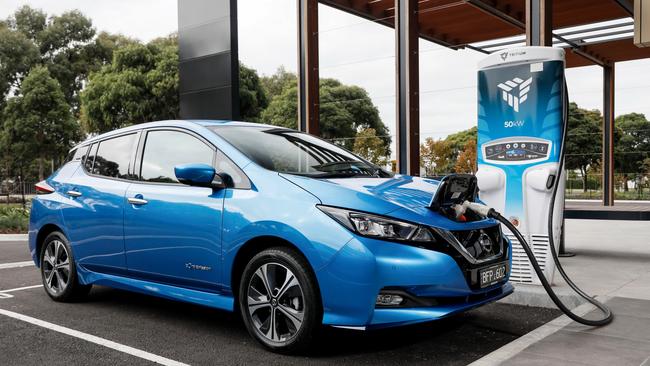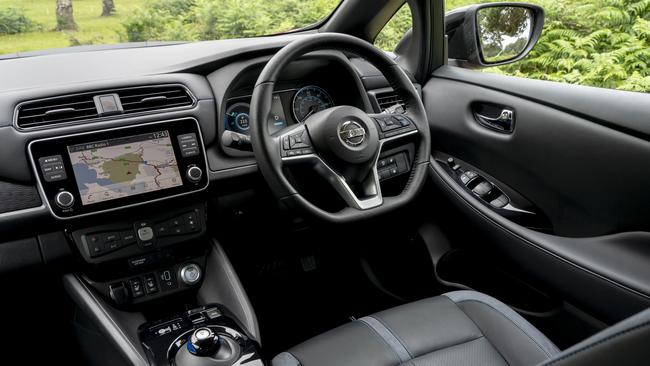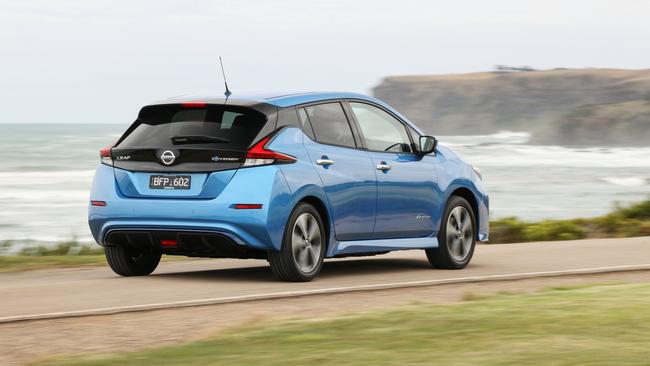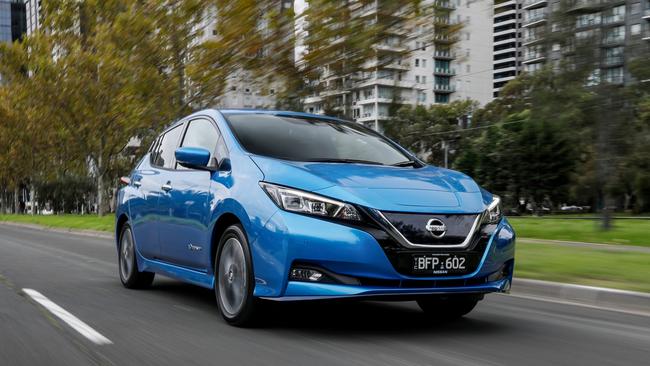Nissan Leaf long-term road test
The world’s leading carmakers have committed to an electric future. We spent six months living with one and it was an eye-opener.
Motoring News
Don't miss out on the headlines from Motoring News. Followed categories will be added to My News.
If you want to start an argument in a pub, there’s now a new alternative to politics, football and religion: electric cars.
Everyone has an opinion about EVs – for some they’re the future, for others they’re a pipe dream of the lunatic left.
The reality is that EVs will eventually take over our roads.
The only question is when.
At the recent climate summit in Glasgow, more than 11 carmakers joined 30 countries in pledging to phase out sales of fossil-fuelled cars by 2040.
So what will car ownership look like in 2040?

After six months living with Nissan’s Leaf, here are some insights.
The first is that the price of EVs will need to come down dramatically before the average family can afford them.
The average transaction price for a new car is roughly $40,000 in Australia, but the starting price for an electric car with a decent amount of range is about $65,000.
EV zealots point out that close to 80 per cent of new cars sold in Norway are electric.
What they fail to mention is that the average price of a new car is the equivalent of $80,000. They haven’t made EVs cheaper, they’ve just made petrol and diesel cars more expensive.
Our Nissan Leaf costs about $65,000 on the road. That’s roughly $35,000 more than the similarly-sized petrol-powered Toyota Corolla.

And unfortunately the cabin doesn’t match the price tag. It’s basically on par with what you’d find in the Corolla, minus a couple of safety features.
The parking brake is foot activated, there are no rear air vents or USB ports and the dash and driver displays are outdated.
That’s the bad news. The good news is the Leaf is much, much quicker than a standard Corolla.
The claimed 0-100km/h time is about 7 seconds, but it’s much quicker off the mark than that time would suggest. Not much is going to see it off at the lights.
It’s also as quiet as a luxury limo and we found it would comfortably travel 360km on a single charge. The official claim is 385km and that’s achievable if you drive conservatively.
If you live in a big city, as most of us do, you’ll be surprised how long that range will last.
We were recharging less than once a week, simply plugging the car in overnight.
We also did a couple of round trips to Sydney’s Blue Mountains without a hint of range anxiety.

Interstate trips are doable with a bit of patience and planning – or you could jump on a flight and hire a car at the other end.
If you want to try a longer intrastate road trip, be warned that EVs are the opposite of petrol cars – they are less efficient on the freeway than in stop-start traffic. So you’ll have to adjust your planning accordingly.
From a driving perspective, an EV is surprisingly normal.
The most obvious difference is the way the car accelerates and slows. Acceleration is rapid and seamless, uninterrupted by gear changes, while the Leaf’s “e-pedal” allows you to slow down without pressing the brake. Simply lift off the accelerator and the electric motor slows the car, charging the battery at the same time.
That makes a big difference to energy consumption. On a 53km round trip in the city with the e-Pedal engaged, we lost just 34km of range.
Once you get used to it, the brake pedal is only there for emergencies.
As with petrol cars, if you’re heavy on the accelerator – or the aircon – you’ll pay for it in range. Leadfoots are likely to get at least 50km less from a charge.
Charging the Leaf is a non-issue if you have off-street parking, though.
Simply plug it into a power point in the garage and you’ll never be caught short. While EVs obviously take longer to recharge than refilling a car, you can actually save time because you never have to visit a petrol station.

Officially it takes up to 32 hours to fully charge from empty from a household plug, but most of the time you’re topping the battery up from 20 or 30 per cent.
On a public 100kW fast-charger, it will take 45 minutes to charge from 20 per cent to 80 per cent. Only problem is that most of the free chargers are 50kW units and take longer.
The reality is that for most people living in cities, you won’t ever need a charging station.
We had hoped to try out the Leaf’s vehicle-to-grid technology, which allows you to store your solar power in the car’s batteries and use it during peak periods, but the introduction has been delayed by regulatory hurdles, much to the frustration of customers who bought the car on the promise of V2G capability.
It’s now looking more likely in the New Year and will come with a significant upfront cost of close to $10,000 for installation.
In short, the Leaf’s not perfect – it’s expensive and not as space-age as you’d expect from the technology of tomorrow – but we found it fuss-free, fun to drive and cheap to operate.
Originally published as Nissan Leaf long-term road test



